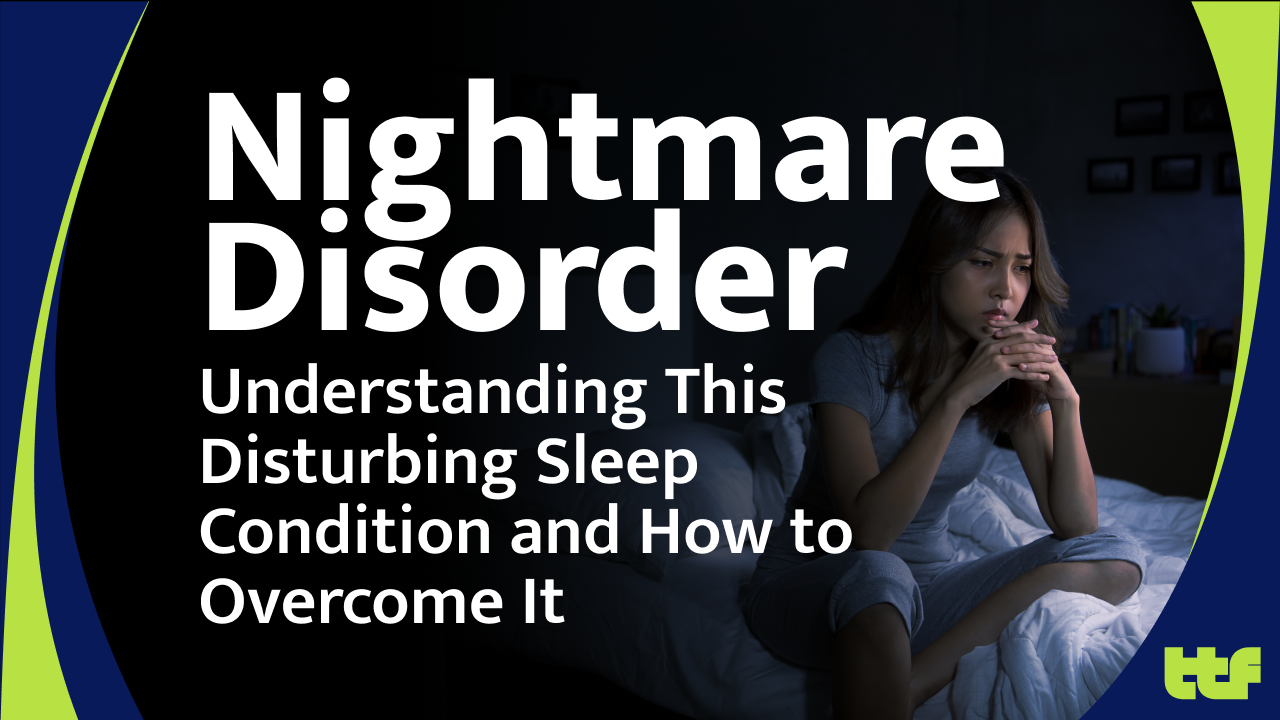Nightmare Disorder is more than just an occasional bad dream. It’s a sleep condition that significantly affects those who suffer from it, leading to anxiety, disrupted sleep, and even daily emotional struggles. This disorder is characterized by frequent, intense nightmares that often cause sudden awakenings and lingering feelings of fear. For some, it can become so overwhelming that it disrupts their ability to function normally in day-to-day life. In this blog, we’ll delve deep into the symptoms, causes, and treatment options for Nightmare Disorder, offering a comprehensive guide to help those affected reclaim peaceful sleep and emotional well-being.
What Is Nightmare Disorder?
Nightmare Disorder, also known as dream anxiety disorder, involves recurrent nightmares that are vivid, disturbing, and often leave the individual feeling scared or anxious. These nightmares typically occur during REM (Rapid Eye Movement) sleep, the stage of sleep associated with vivid dreaming. For those with this condition, the dreams are so intense that they can cause the person to wake up, making it difficult to fall back asleep.
Symptoms of Nightmare Disorder
- Frequent Nightmares: Nightmares that happen multiple times a week or even nightly.
- Vivid and Disturbing Content: Nightmares are often centered around themes of danger, fear, or distress, and feel very real.
- Waking Up Suddenly: These nightmares can cause sudden awakenings, often with feelings of fear or anxiety.
- Difficulty Returning to Sleep: After a nightmare, individuals may find it hard to fall back asleep due to lingering anxiety or fear.
- Daytime Distress: The anxiety from the nightmares can carry over into the day, affecting mood, focus, and emotional well-being.
Causes of Nightmare Disorder
The exact cause of Nightmare Disorder isn’t entirely clear, but several factors can contribute to its development:
1. Stress and Anxiety
High levels of stress and anxiety can trigger nightmares. Major life events such as a job loss, trauma, or significant changes can lead to this sleep disturbance.
2. Sleep Disorders
Conditions like insomnia, sleep apnea, or restless leg syndrome can disrupt sleep patterns, making nightmares more likely.
3. Mental Health Conditions
Mental health issues such as PTSD (Post-Traumatic Stress Disorder), depression, and anxiety disorders are often linked with frequent nightmares.
4. Medications and Substance Use
Certain medications, especially those affecting the brain’s chemistry like antidepressants or blood pressure drugs, can trigger nightmares. Alcohol and drug use can also disrupt sleep cycles, leading to nightmares.
5. Genetic Factors
If there is a family history of sleep disorders, you may be more prone to experiencing Nightmare Disorder.
How Nightmare Disorder Affects Daily Life
Nightmare Disorder can have a profound impact on a person’s life beyond just disrupted sleep. The fear and anxiety associated with these nightmares can carry over into waking hours, leading to:
- Emotional Distress: Increased anxiety, depression, or irritability.
- Impaired Daytime Functioning: Difficulty concentrating, fatigue, and lowered performance at work or school.
- Social Isolation: The fear of discussing these experiences can lead to withdrawal from social interactions.
- Physical Health Issues: Chronic sleep deprivation can weaken the immune system and contribute to other health problems.
Treatment Options for Nightmare Disorder
Thankfully, there are several effective treatments available for those struggling with Nightmare Disorder. The right approach often depends on the underlying cause of the nightmares and the individual’s overall health.
1. Cognitive Behavioral Therapy (CBT)
CBT is one of the most effective treatments for Nightmare Disorder. It involves identifying and changing negative thought patterns that may contribute to nightmares and teaching relaxation techniques to reduce anxiety before bed.
2. Imagery Rehearsal Therapy (IRT)
This therapy involves rewriting the ending of the nightmare while awake, turning it into a less frightening or more positive scenario. Practicing this new dream scenario can reduce the frequency and intensity of nightmares.
3. Medication
In some cases, medication may be prescribed to help reduce the frequency of nightmares, especially if they are related to another condition like PTSD. These medications can include antidepressants or drugs that affect the REM sleep cycle.
4. Improving Sleep Hygiene
Adopting better sleep habits can have a significant impact on reducing nightmares. This includes maintaining a regular sleep schedule, creating a relaxing bedtime routine, avoiding heavy meals before bed, and limiting exposure to screens.
5. Stress Management Techniques
Practicing relaxation techniques such as meditation, deep breathing exercises, and yoga can help reduce overall stress and anxiety, making nightmares less likely.
Preventing Nightmare Disorder
While it may not always be possible to prevent Nightmare Disorder entirely, especially when it is related to other conditions, there are steps you can take to minimize the risk:
- Create a Relaxing Bedtime Routine: Engage in calming activities before bed, like reading, taking a warm bath, or listening to soothing music.
- Limit Exposure to Negative Media: Avoid watching scary movies or reading distressing news stories before bed.
- Exercise Regularly: Physical activity during the day can reduce stress and promote better sleep.
- Seek Support: If you’re experiencing stress or anxiety, talking to a therapist or counselor can provide helpful coping strategies.





